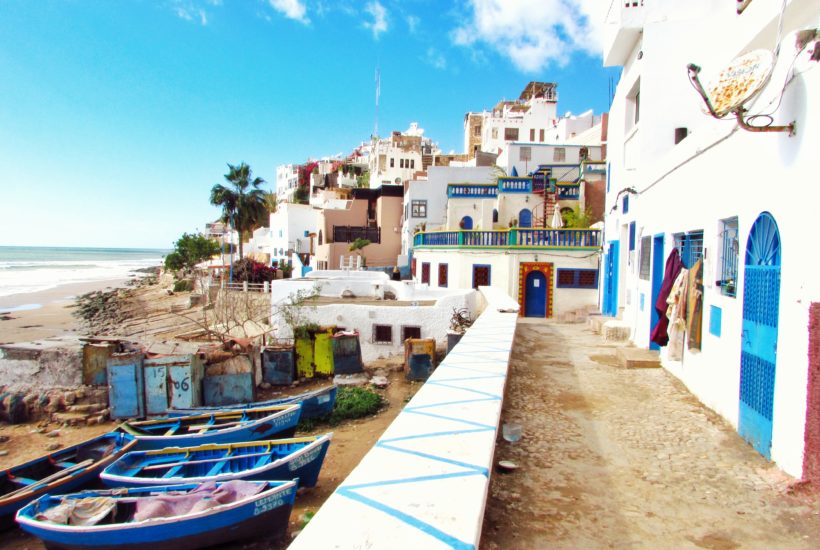Africa
The crowdfunding sector in Morocco is still struggling to take off the ground
The law imposes very restrictive conditions on the development of crowdfunding in Morocco. Crowdfunding is therefore struggling to take off in Morocco, and there is still a lot of work to be done in order to really introduce and install this concept. According to the statements of professionals, the modalities of its implementation must change in order to further democratize this mode of financing.

The emergency financial measures and the various financial support mechanisms put in place by the State have helped cushion the shock suffered by companies following the economic downturn. However, getting the national economic fabric back on track will require more financial resources. Because, currently, banks cannot provide all companies with adequate financing possibilities. It is, therefore, necessary to consider new, innovative, and non-binding tools, especially for startups.
The emergence of crowdfunding may prove to be a solution, not an alternative to traditional financing, but one that would complement it. This so-called crowdfunding consists of collecting small amounts of money from a large number of individuals or institutions to finance defined projects. This mechanism bypasses traditional financial intermediaries (banks, incubator associations, etc.) and uses digital platforms to put project leaders and contributors in direct contact with each other.
Read more about the crowdfunding sector in Morocco and find the most important financial headlines of the day with our companion app, Born2Invest.
The current law poses a problem
In Morocco, the first crowdfunding platforms were launched in 2014. Currently, there are only two, Cotozi and Wuluj, which remains very minimal for an economic fabric that has high expectations in terms of funds and financing. Law 15.18 on crowdfunding, passed unanimously by the House of Representatives in February 2020, was good news for startups in that it delineated the status of crowdfunding platform managers.
However, this law sets rather restrictive conditions for the development of this practice by dedicated platforms. “The main conditions imposed on platforms, which I will describe as “financial logistics”, are to have a minimum share capital of 300,000 dirhams, a policy of prevention and risk reduction to identify the origin and destination of funds, to request additional information regarding the substantial funds and to check the banking prohibitions for the various players,” analyzes Adnane Addioui, founder of Wuluj, a Moroccan portal dedicated to supporting the financing of start-ups.
“These platforms also have the obligation to appoint an auditor “in charge of a mission of control and monitoring of the accounts of its collaborative financing activities”. All this arsenal that must be put in place by the platform increases its role in supporting innovative projects and liberating energies and potential,” he said.
It should also be noted that most of the platforms that exist in the world are autonomous social enterprises or backed by large structures, and therefore often non-profit. Crowdfunding in itself does not allow to earn money in a general way, because the contributions are a matter of donation. Paradoxically in Morocco, a crowdfunding platform is subject to VAT and corporation tax, which is contradictory, since the funds collected are donations from contributors.
Crowdfunding is therefore struggling to take off in Morocco, and there is still a lot of work to be done in order to really introduce and install this concept. According to the statements of professionals, the modalities of its implementation must change in order to further democratize this mode of financing and make it accessible in a general way.
“The creation of a complementary legal framework in favour of the status of social enterprise becomes imperative. The culture of the “Business Angel” is embryonic in Morocco; the initiation and raising of private funds is very low; countries like Tunisia have managed to resolve all these barriers in less than 5 years, particularly through the Startup Act, incentive regulation and promotion of entrepreneurship in a positive manner among citizens and the diaspora,” said Adnane Addioui.
__
(Featured image by Louis Hansel via Unsplash)
DISCLAIMER: This article was written by a third party contributor and does not reflect the opinion of Born2Invest, its management, staff or its associates. Please review our disclaimer for more information.
This article may include forward-looking statements. These forward-looking statements generally are identified by the words “believe,” “project,” “estimate,” “become,” “plan,” “will,” and similar expressions. These forward-looking statements involve known and unknown risks as well as uncertainties, including those discussed in the following cautionary statements and elsewhere in this article and on this site. Although the Company may believe that its expectations are based on reasonable assumptions, the actual results that the Company may achieve may differ materially from any forward-looking statements, which reflect the opinions of the management of the Company only as of the date hereof. Additionally, please make sure to read these important disclosures.
First published in La Qoutidienne, a third-party contributor translated and adapted the article from the original. In case of discrepancy, the original will prevail.
Although we made reasonable efforts to provide accurate translations, some parts may be incorrect. Born2Invest assumes no responsibility for errors, omissions or ambiguities in the translations provided on this website. Any person or entity relying on translated content does so at their own risk. Born2Invest is not responsible for losses caused by such reliance on the accuracy or reliability of translated information. If you wish to report an error or inaccuracy in the translation, we encourage you to contact us.

-

 Crowdfunding1 week ago
Crowdfunding1 week agoBSG Stahl Riesa Launches Crowdfunding for New Floodlights
-

 Cannabis6 days ago
Cannabis6 days agoSnoop Dogg Searches for the Lost “Orange” Cannabis Strain After Launching Treats to Eat
-

 Crypto2 weeks ago
Crypto2 weeks agoIntesa Sanpaolo Signals Institutional Shift With Major Bitcoin ETF Investments
-

 Cannabis22 hours ago
Cannabis22 hours agoBrewDog Sale Leaves Thousands of Crowdfunding Investors Empty-Handed






















